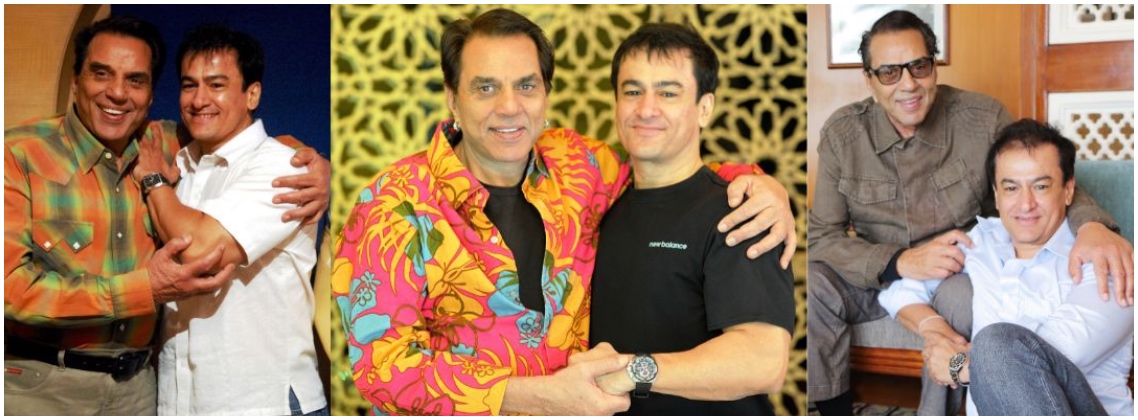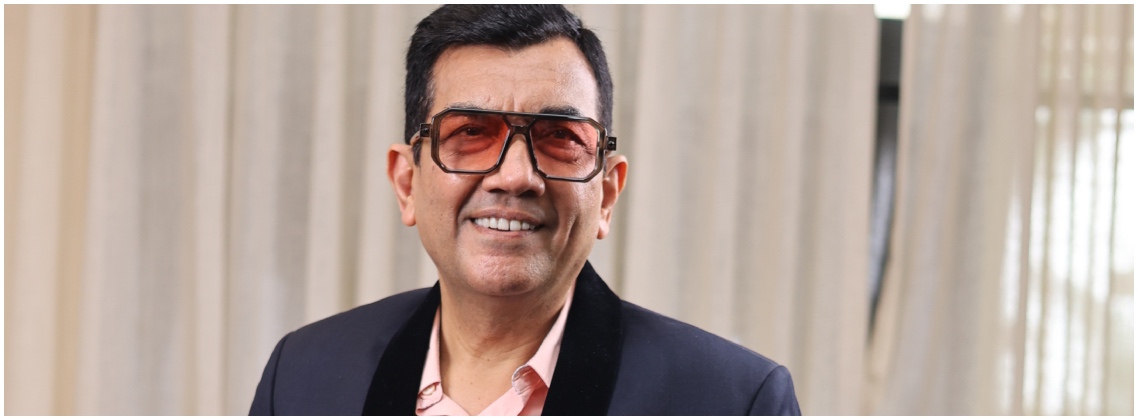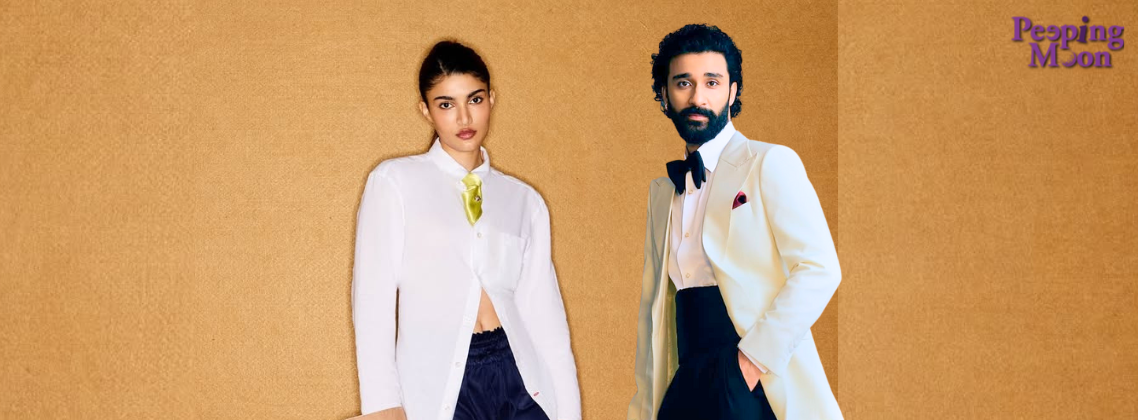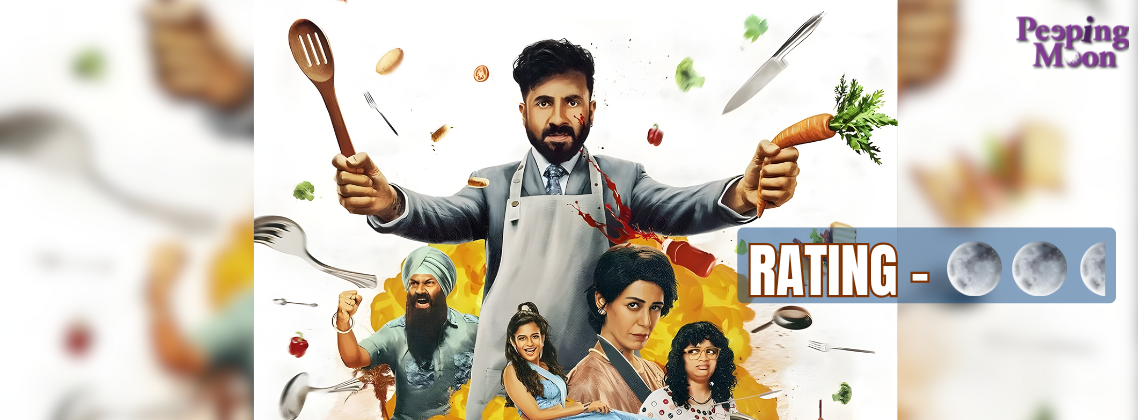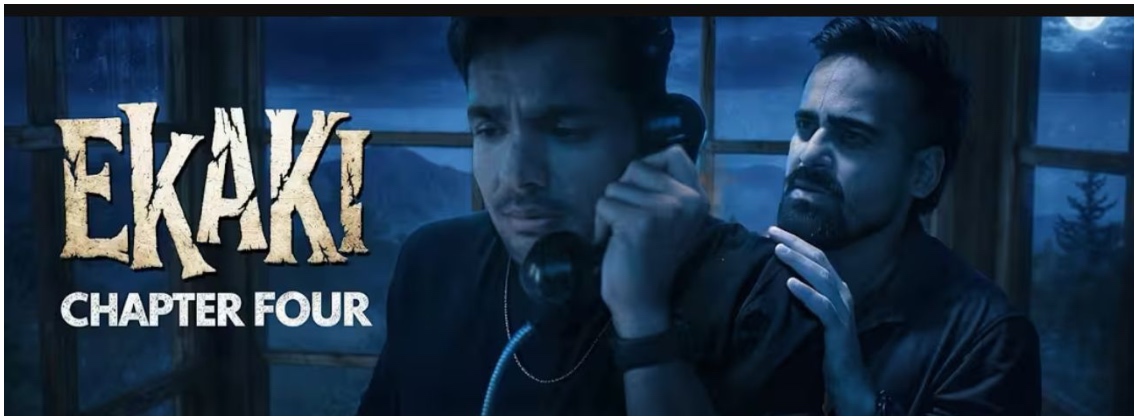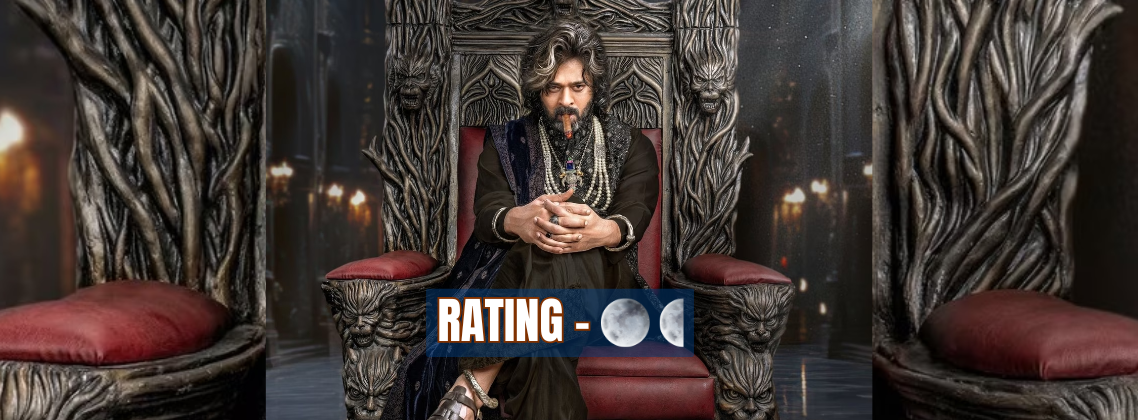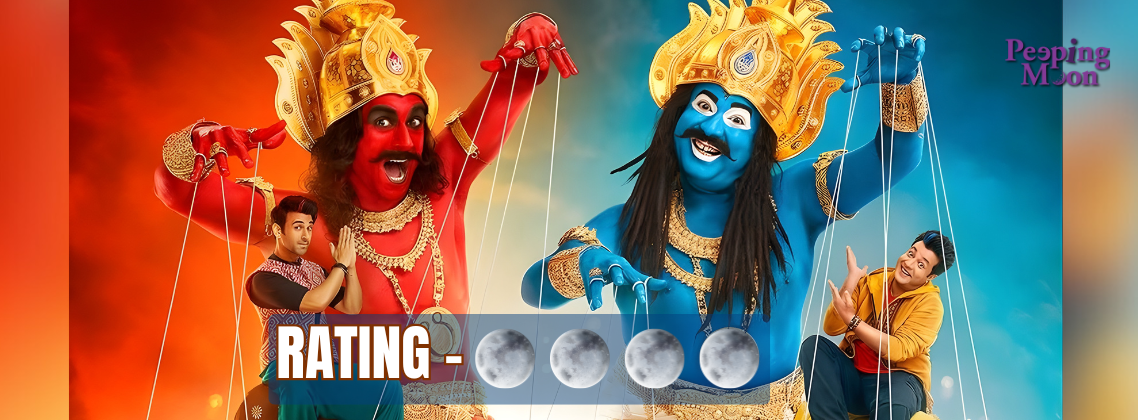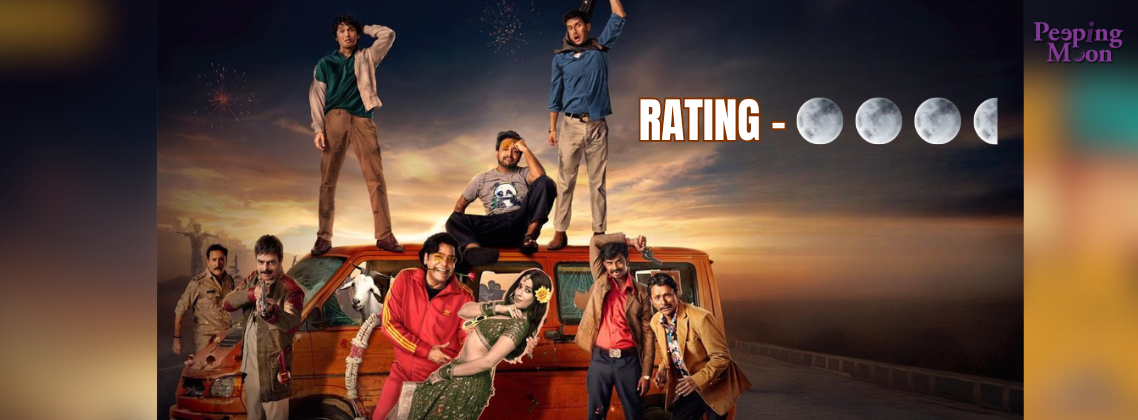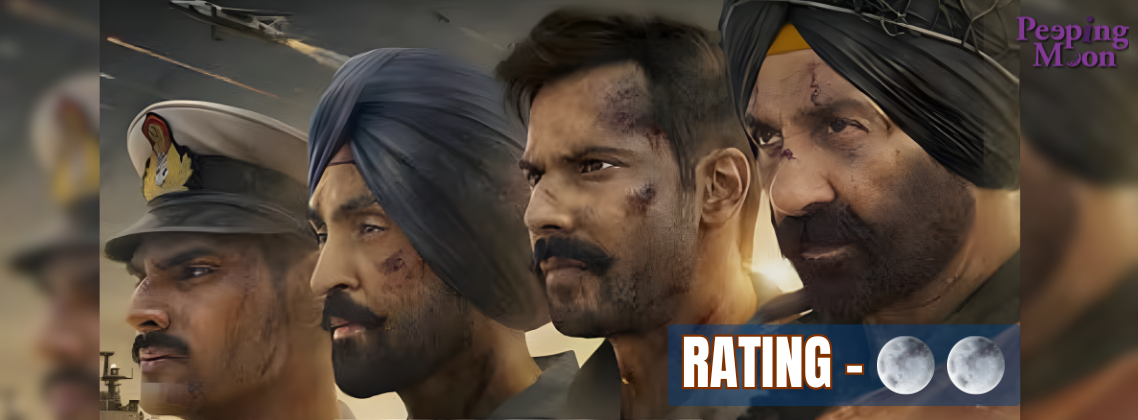"The problem with being misrepresented comes from the fact that queer storytellers are not getting opportunities to tell queer stories," said director Faraz Ansari to PeepingMoon during a heart-to-heart exclusive conversation over a phone call. Faraz's film Sheer Qorma has qualified for the BAFTA awards and will also be showcased at the Indian Film Festival Melbourne. Starring Shabana Azmi, Swara Bhasker and Divya Dutta in the lead, Sheer Qorma is a story of love and acceptance.
Faraz's labour of love is receiving much appreciation and accolades on the global platform through various film festivals. However, the Indian audience is yet to savour the delicious 'Sheer Qorma' made with affection and only good intentions. As Faraz talked to us, the filmmaker went on to highlight the homophobic, misogynistic and regressive nature of society that refuses to acknowledge a deep-rooted problem. The problem of queer misrepresentation. Faraz further revealed that how Sheer Qorma changed the life of a woman in her mid-40s.
Excerpts from the interview:
.jpg)
What’s the idea behind the title Sheer Qorma?
I’ll tell that to you without giving any spoilers. I think in different communities across the world, food is used as an emotion. Personally, I love to cook for people I love. Many times, fights or arguments, or disagreements at our homes end with a great meal. Food has been a powerful way of bringing people together. People sit down together in silence and surrender themselves to the joy of being united. I wanted to explore that emotion and that side of the power that food has.
Initially, the film was called Gajar Ka Halwa, a lot of people don’t know about it. I asked my mother and then she said, “You love Sheer Qorma, so why isn’t the film called so?” It is a more interesting title, you know. Sheer Qorma has a bit of poetry in the way it is pronounced, it is lyrical.
How did you manage to bring Shabana Azmi, Swara Bhasker and Divya Dutta on board?
It is really a casting coup in that sense. To be honest, I wrote the film with Shabanaji, Divya and Swara in mind. I was determined to be able to get these actors. I believe that if you have written a powerful and impactful film, you will get the right actors for it. Luckily, when I reached out to them, they associated with Sheer Qorma not just as actors but as activists and artists. They really wanted to champion the narrative that Sheer Qorma stands for; a narrative of inclusion, acceptance and love. Thankfully that aligned with them. I never really convinced them, they were convinced by the film. The universe has been very kind to me.

Why do you think in India, films on queer don’t get the kind of support they should be getting?
There is a one-worded answer for this. It is called ‘HOMOPHOBIA’. People continue to be homophobic. We have a problem and we are not ready to accept it. A lot of people tell me how they are happy to see more queer content because of OTT platforms. Queer content should exist only on OTT platforms is also a homophobic thing to say. That queer films don’t deserve a theatrical release. We need to constantly keep reminding each other of our prejudices, we are all prejudiced. We, humans, are by default prejudiced. I feel when opportunities and films like Sheer Qorma come, it puts a spotlight on people’s prejudices and emotions. The reason we don’t have enough content, good and honest queer content is that homophobia exists. It is a sad reality.
Being a filmmaker, do you think cinema is a strong medium that can normalise LGBTQ in countries like India?
A 100%. I personally feel that a filmmaker is as powerful as the Prime Minister or President of any country for that matter. A filmmaker can change the way people think, love, dress up, and also the way people speak. We can subconsciously change the way people think and in people’s lives.
I’ve experienced that with my first film, Sisak which was India's first silent queer film. It went on to win international awards, but the biggest award was when people came out to their families after watching my film. The same trajectory is now happening with Sheer Qorma. Two weeks ago, a first-generation American with her roots in Pakistan who happened to watch the film wrote such a beautiful message that she is a bisexual in her mid-40s. After watching Sheer Qorma, she came out to her mother. Imagine, how many lives are changing just with the power of cinema. People see themselves existing on the big screen. They feel their identities are valid, they feel they are real and that they are not alone. That’s what cinema can really do. It can make people feel that they are not alone, and they are alright and nothing is wrong with them. If we achieve that kind of inclusion and acceptance then why are we not doing more of it? We should utilise cinema as a tool of change.
.jpg)
You made India’s first silent LGBTQ film Sisak. Now, many filmmakers are trying to touch upon that subject. Do you still feel the community is misrepresented?
A 100%. The problem with being misrepresented comes from the fact that queer storytellers are not getting opportunities to tell queer stories. These opportunities are being passed on to people who are not belonging to the queer community. Therefore they will always be dishonest. They will always come from a place of being inauthentic because of a very simple reason that your research will never qualify for a real-life experience. When a person has lived a life, he/she will have more emotions, more authenticity versus someone who has not lived that life.
If you have to make a film about your life tomorrow, who will be the best person to make that film? It will be you and not a third person who will say, “Let me do research on your life and make a film.” That’s rubbish and I think that is the problem. This also comes from homophobia, you know. People will be like, “We want to make a queer film, but don’t want a queer filmmaker to make it.”
What are the challenges you have to face while making films on queer?
The biggest challenge that one really faces is a) to get producers b) to get the right casting. These two are the biggest challenges as people don’t want to invest and act in queer films. I had the same journey with Sheer Qorma. I reached out to many producers. On the first day, they heard the film and then they turned to me and said, “We love it and will produce it but can you change the character of a woman into a man?” They wanted to see two good looking men with eight-pack abs on-screen. I think they are very misogynistic. They don’t want to see women on-screen, just men. Even when the film is about two queer women, they want a man to narrate it. How stupid? Why are we so misogynistic? It baffles me. Sheer Qorma breaks it all since it has all women protagonists. We don’t really make many films with women as protagonists so that’s also a milestone.

With Sheer Qorma, do you hope that we get to see more films on women sexuality?
I really hope so. I can speak for myself whether I will be making more films on this subject. Yes, I’ll be making such films. Others I don’t know. Like I said, being so deeply misogynistic and homophobic, I don’t know if people will really make it. Hopefully, they take note of Sheer Qorma.
Dostana was a mainstream Bollywood film on queers. Have you seen the film?
No, I never watched Dostana because I found it problematic. The reason I didn’t watch it is that there are some problematic stereotypes in the film. What I understood from the trailer was the two men who are playing homosexuals are not even homosexuals in the film. Also, there is this whole understanding that one has to be effeminate and the other has to be more masculine, correct? That’s not how it works. This is a question a lot of people ask that who is the man and who is the woman. Both individuals in a relationship can be of the same sex. This heteronormative understanding of love keeps me thrown out of the window. Dostana only did damage to the queer community. From the trailer I understood that it was put out that one is not born gay, you act gay. That is not true. People are born queer and nobody can 'act' it out. To reduce it down to such a regressive narrative is also deeply problematic.
With Sheer Qorma being received well on a global platform, do you feel aspiring filmmakers with a voice will get more confidence to make thought-provoking films on the topic?
I really hope Sheer Qorma serves to be an inspiration to filmmakers, especially queer filmmakers. If they have a voice and an important story to tell, they will find an audience. Honestly, it is more about visibility. If people see films like Sheer Qorma are being made, being awarded and receiving accolades at international film festivals, they’ll see the potential behind it. Not just the winning potential but the commercial potential too. Films like Sheer Qorma can make money and are making money. That is the truth. Even a short film like Sisak made money.

The LGBTQA+ is an underrepresented community. Do you agree?
When was the last time we have seen an authentic representation of the queer community in India? Even the representation is problematic. I think we don’t even have enough representation. When was the last time we saw two women actors in love with one another on the poster of the film? Maybe 1996 when Fire came out and now with Sheer Qorma. We have taken such a long time to do that. Thankfully both the films have Shabanaji in them. When we will have enough representation, we’ll be less homophobic.

.jpg)

